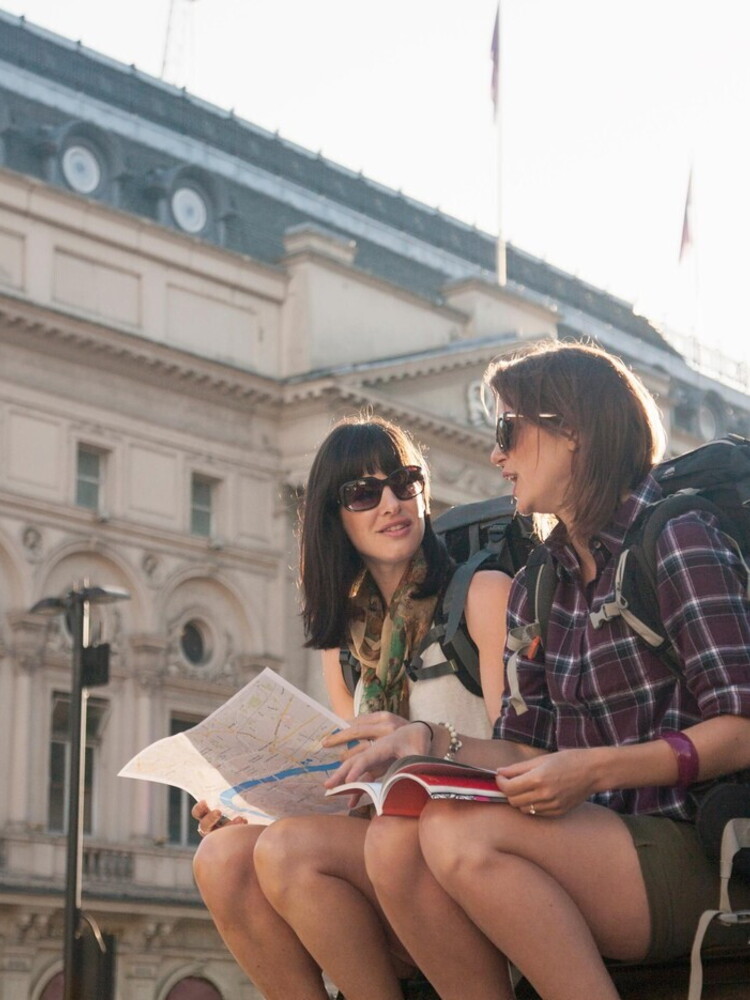From today, and until 11 February, the Bit – International Tourism Stock Exchange, one of the most relevant appointments for the tourism sector will be held in Milan. On the occasion of the event, the Observatory of the Foundation for Digital Sustainability presented the report “Sustainable Tourism“, Based on the Disi ™ index (Digital Sustainability Index). The research analyzes the role of digital in the transformation of tourism and in the adoption of more sustainable practices, offering an updated photograph of the behaviors of Italians in the sector.
“Digital can be a powerful development engine for the entire tourism sector. It is essential to guide the choices and behaviors of travelers, encouraging them to exploit digital tools more and to privilege more sustainable travel solutions, but it is necessary to understand how to use these tools: for example, because they are contrasting the lovestourism, and not because it stimulates it “, Stefano Epifani, president of the Foundation for digital sustainability, says.
1. Digital is the tourism engine: 70.8% of Italians book online
The use of digital technologies in tourism is now essential. 70.8% of Italians use digital tools to book their holidays, a percentage that rises to 80.4% among young people aged between 16 and 17 years. Artificial intelligence and online booking platforms are also improving the travel experience: 64.4% of respondents believe that digital evolution will bring benefits already in the next six months.
According to Epifani, “the ease of use, availability, attention to the environment, social and economy and the possibility of analyzing more tourist proposals in a few clicks can digitally ask the main tool to easily meet demand e Offer, pushing the sector towards receptivity, destinations and numbers first difficult to reach. But it serves widespread culture in operators, otherwise it risks becoming an instrument that leads only to platforms. ”
2. A more sustainable and conscious tourism thanks to digital
Digital sustainability can decisively contribute to the reduction of tourist overcrowding and the enhancement of alternative destinations. 64.6% of Italians believe that tools such as artificial intelligence can optimize visitor flows, avoiding excessive concentration in the most popular destinations. 69.1% say that technology allows greater awareness in choosing the destination and in booking, while 81.4% of the most digitized and attentive users to sustainability maintain that online booking apps favor the discovery of less beaten destinations , also supporting small accommodation facilities.
“Tourist overcrowding negatively affects not only on the environment, but also on the quality of life of residents and on the experience of visitors”, underlines Epifani. “If used correctly, digital can favor a more fair distribution of tourists, improving travel experience and supporting local economies”.
3. Young people guide the demand for Green tourism
Attention to environmental sustainability is growing, but the cost remains a decisive factor. 67.5% of Italians say they prefer eco-friendly structures, but only for the same price compared to traditional alternatives. Young people are more sensitive to the theme: 68.3% of interviewees between 16 and 17 years of age and 61.2% between 18 and 24 years of age are willing to pay over to stay in structures with low environmental impact.
However, the data emerges a discrepancy between the desire for sustainability and financial resources. Many travelers declare themselves in favor of green solutions, but are not willing to invest additional resources to adopt them.
4. The role of the apps: how much are they used?
Digital applications represent key tools to make tourism more sustainable, but their diffusion is still uneven. 67.5% of digitized users use booking platforms such as Booking, Expedia, TripAdvisor and Airbnb, while only 19% rely on services focused on sustainability such as Fairbnb or Cityaround. 41.1% of respondents say they do not know these alternatives at all.
The apps for booking museums and cultural attractions are used by 26.6% of Italians, but the percentage rises to 49.1% among those who are more digitized and attentive to sustainability.
“We must not confuse the wrong use of digital with digital itself,” concludes Epifani. “A widespread digital culture is needed, just as a more conscious culture of sustainability is needed.”
Towards a more sustainable future
The report of the Foundation for digital sustainability confirms that digital represents a strategic lever to transform tourism into a sustainable key. However, to fully grasp this opportunity, an institutional commitment aimed at promoting the digitization of tourist destinations is necessary and exploiting technology to promote more responsible development models.
Tourism can become a strong qualitatively skiller, as long as digital and green practices proceed hand in hand.
